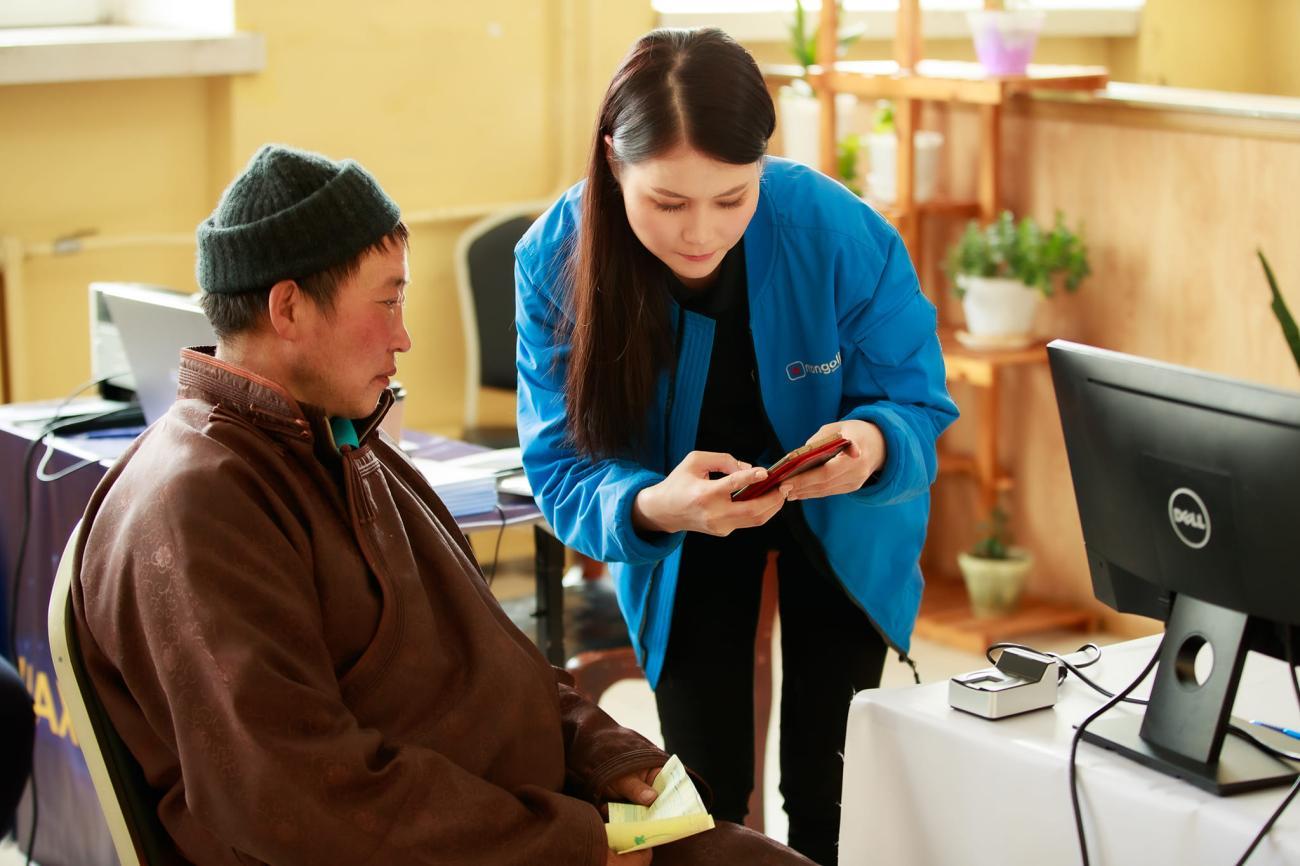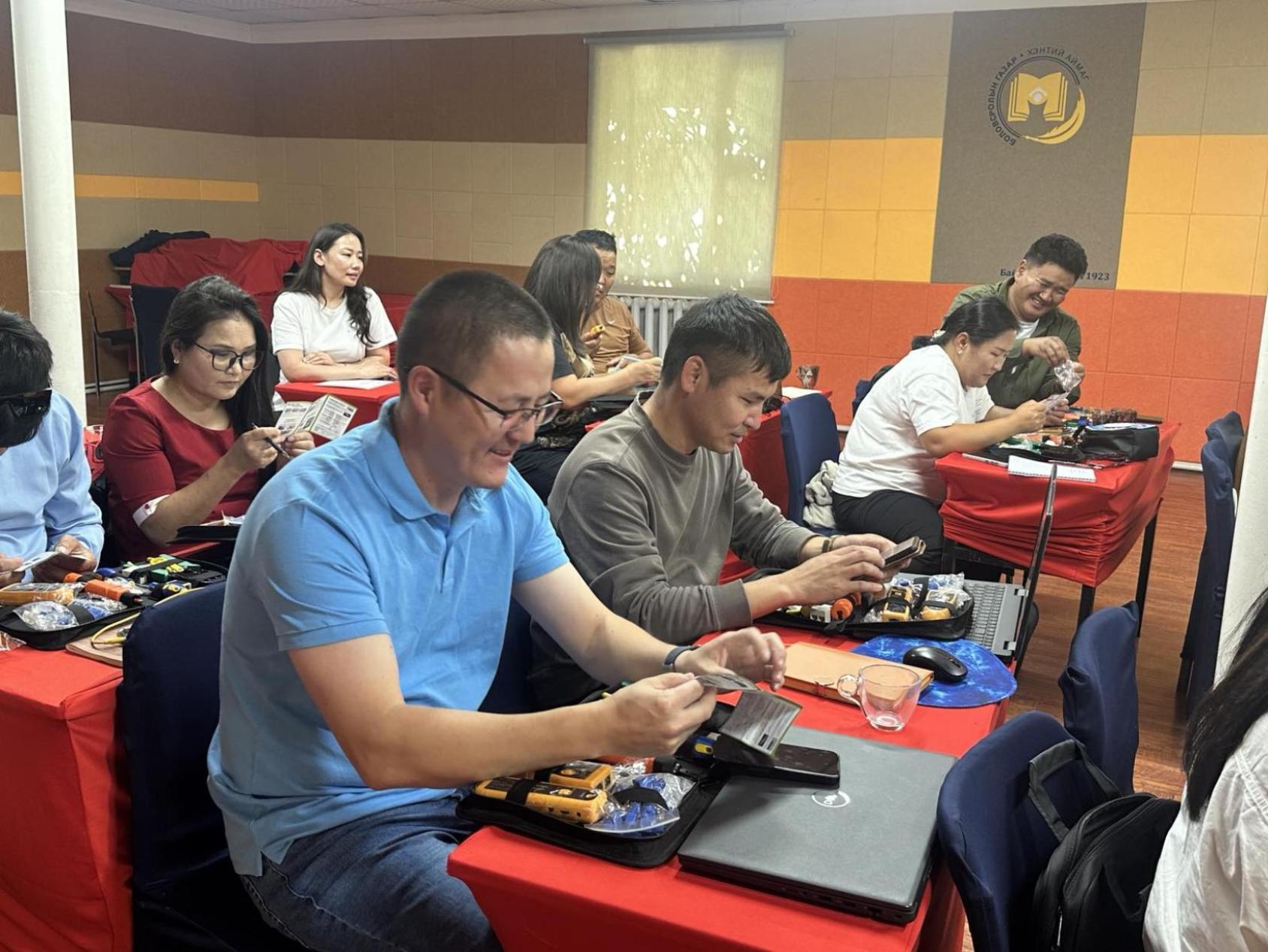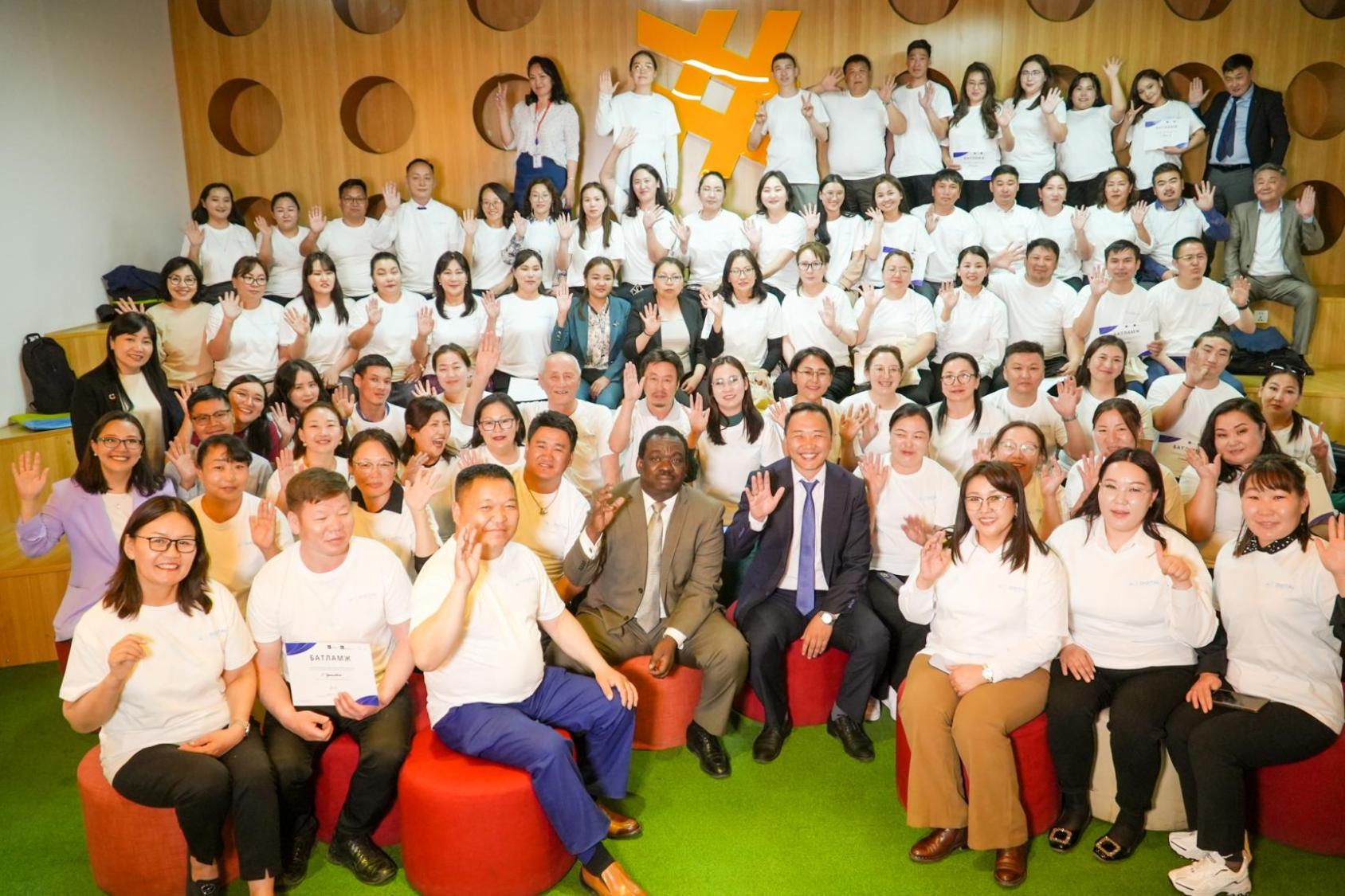Bridging the Digital Divide in Mongolia

In the vast expanses of Mongolia, where nomadic herders roam with their livestock, access to technology can be a game-changer.
To unlock this potential, the Government has been focused on boosting the digital skills of citizens across the country, including in remote and underserved communities. This is a vital step toward Mongolia’s goal of becoming a digitally connected nation. The country aims to empower its people through accessible and inclusive digital services, particularly its nomadic population.
As part of this transformation, the Government’s Digital Nation Strategy includes the e-Mongolia initiative, a successful platform for delivering public services to every corner of the country, connecting diverse social groups, including nomadic communities.
The UN in Mongolia supports this vision, working closely with the Government through its joint programme on strengthening digital e-Mongolia services to increase digital literacy, expand access to digital services, and empower marginalized communities. The Resident Coordinator’s Office (RCO) leads this joint work with the UN Development Programme (UNDP) and UN Children’s Fund (UNICEF). This collaboration focuses on enhancing digital literacy and access in specific regions of Mongolia including, Darkhan-Uul, Khentii, Dornod, and Ulaanbaatar.

Darkhan-Uul: A model for digital transformation
The programme began in Darkhan-Uul province, an area the Government aims to transform into an "Exemplary Digital Province" in Mongolia. As the central region's pilot hub, the province leads the action, with a strong commitment from the local administration.
"We are delighted to collaborate on this project to deliver faster and more accessible public services via online to the citizens of our province and also enhance our citizens' digital literacy," said Soyolmaa Namkhaijav, Head of the Government E-Services Department in Darkhan-Uul Province.
The programme is partnering with the provincial administration to establish Mongolia’s first Digital Training Facility (DTF), catering to the urgent need for digital skills. This facility will be crucial in providing basic digital skills to underserved rural areas, equipping citizens with essential tools for the digital age.
As part of e-Mongolia, "KhurDan" (translated as “fast” in English) digital service kiosks are rolled out to boost the accessibility and efficiency of public services. A mobile unit, designed to bring digital literacy directly to communities, is also being developed. The local administration has committed resources for the training facility, demonstrating their strong support and commitment.

Empowering communities through education
Mongolia’s digital transformation includes a significant educational dimension, including the development of a customized curriculum and training modules for both local communities and public servants. Schools, recognized as key community pillars, play a central role in this initiative. A network of Digital Community Information Workers (DCIWs) has been established in schools to enhance digital skills and connectivity.
“I learned a lot from the training on the proper use of information technology and obtaining information in digital space. Besides learning some of the hard skills on ICT, I am also now able to teach my students digital skills to safely surf the internet while ensuring their safety online,” said N. Erdenetuya, a teacher in Oyunii Ireedui School in Darkhan-Uul province.
In 2024, the programme launched its year-long training initiative with an orientation session for 60 teachers from 30 schools, along with local education officers. This training, designed by digital literacy experts and supported by Giga, a joint initiative of UNICEF and the International Telecommunications Union (ITU) to “connect every school to the internet”, is accessible to all participants.
By improving school connectivity, trained DCIWs help bridge the digital divide, allowing students, teachers, and parents to access vital digital resources and services. This initiative also provides tailored training for parents, empowering them to support their children’s learning and development.

A digital future for Mongolia
The RCO has been building partnerships and mobilizing resources and expertise within the UN system and externally to support Mongolia's ambitious pursuit of a digital future. Under the RCO's guidance, UN system entities came together to contribute to the development of a comprehensive digital inclusion strategy, ensuring that no one is left behind in Mongolia's digital transformation.
Recognizing that government buy-in is crucial for sustainable impact, the RCO has actively engaged with relevant national partners, including the Ministry of Digital Development, Innovation, and Communications of Mongolia. This engagement ensured the programme is fully aligned with national priorities, tailoring it to the realities on the ground and emphasizing the Government’s ownership.
The Joint Programme on Digital e-Mongolia Services and Communities that UNDP and UNICEF implemented with the Ministry of Digital Development, Innovation and Communications of Mongolia aims to train at least 3,000 Mongolians, half of whom are women, in three target provinces and Ulaanbaatar City. This programme will equip 12 master trainers with the capacity to train 300 public servants, including 150 women, at the national and subnational levels.
As part of its work, the RCO proactively shared the programme's vision and impact with international development partners, effectively mobilizing resources from the Joint SDG Fund. The European Union and the governments of Belgium, Denmark, Germany, Ireland, Italy, Luxembourg, Monaco, the Netherlands, Norway, Poland, Portugal, the Republic of Korea, Saudi Arabia, Spain, Sweden, and Switzerland sponsor this Fund.
Looking ahead, the UN in Mongolia team aims to scale up its work towards bridging the digital divide ensuring long-term impact and a more inclusive, connected society.
To read more about the work of the UN in Mongolia visit mongolia.un.org













